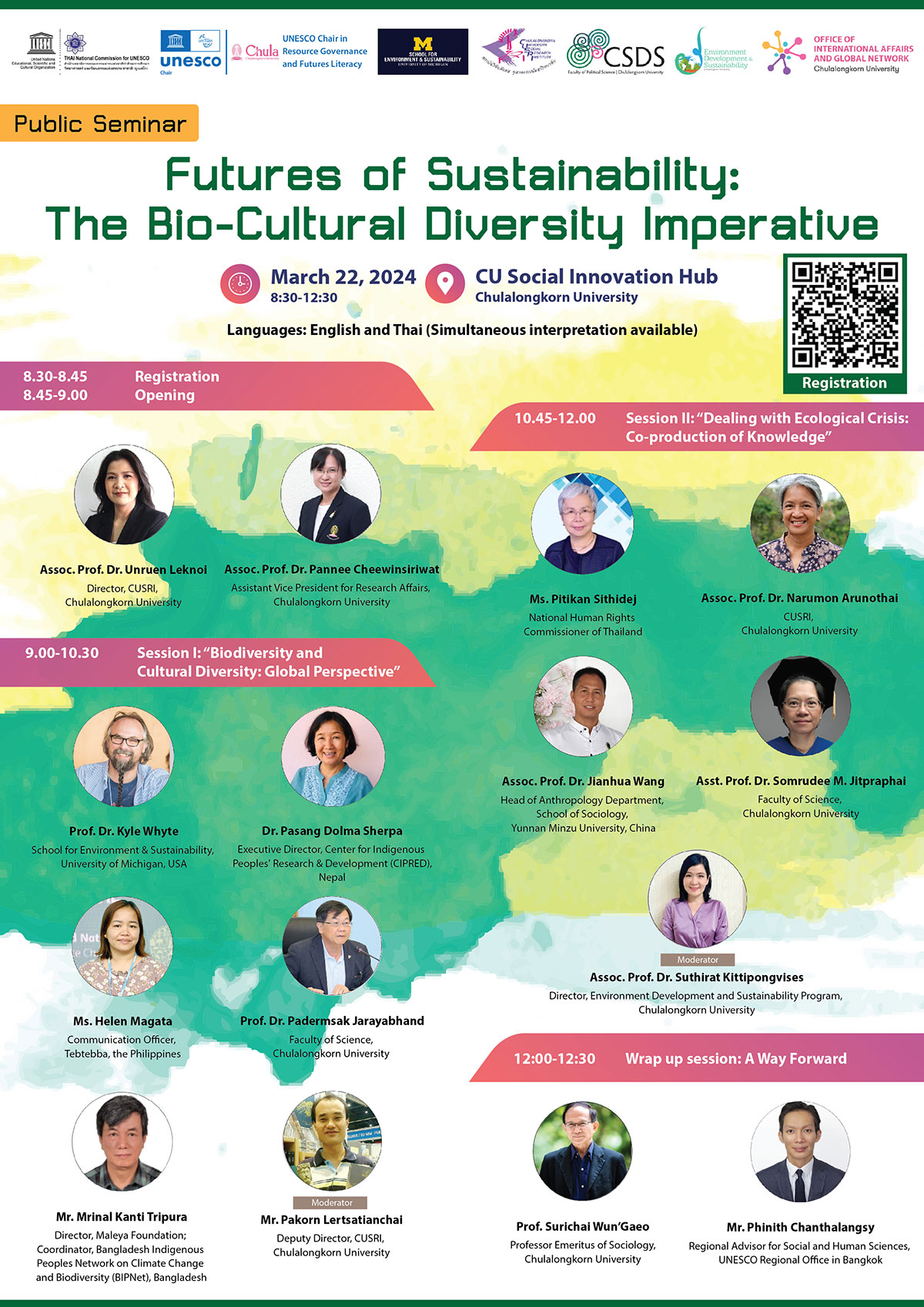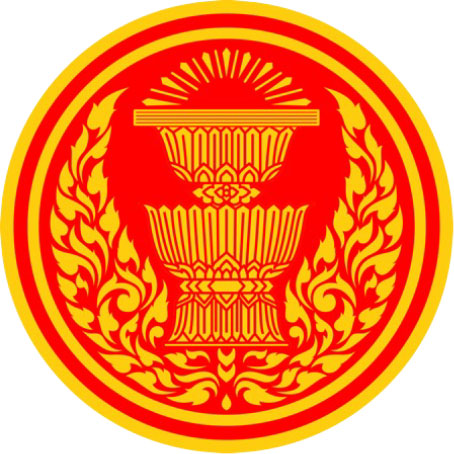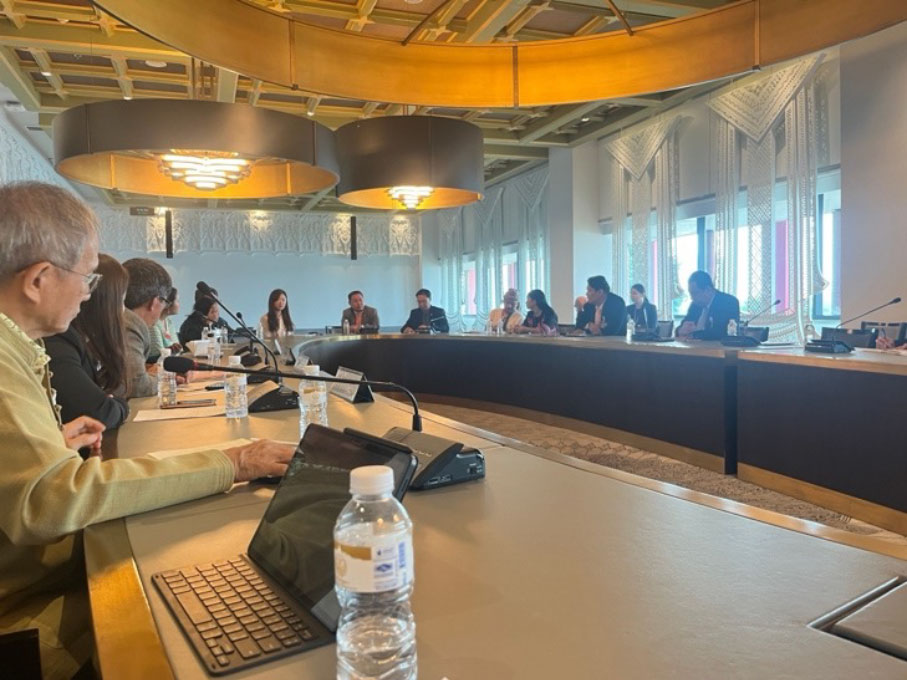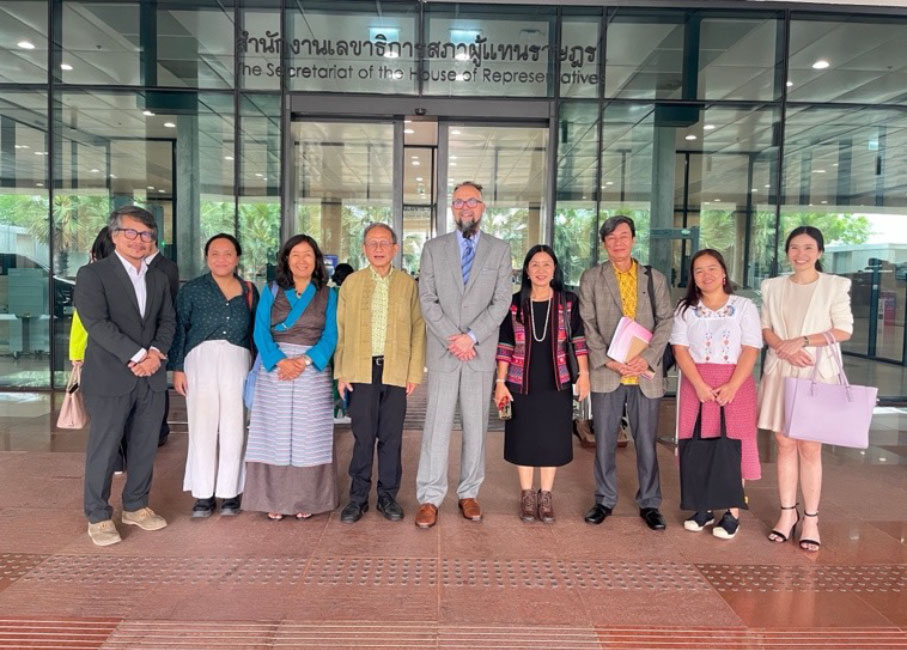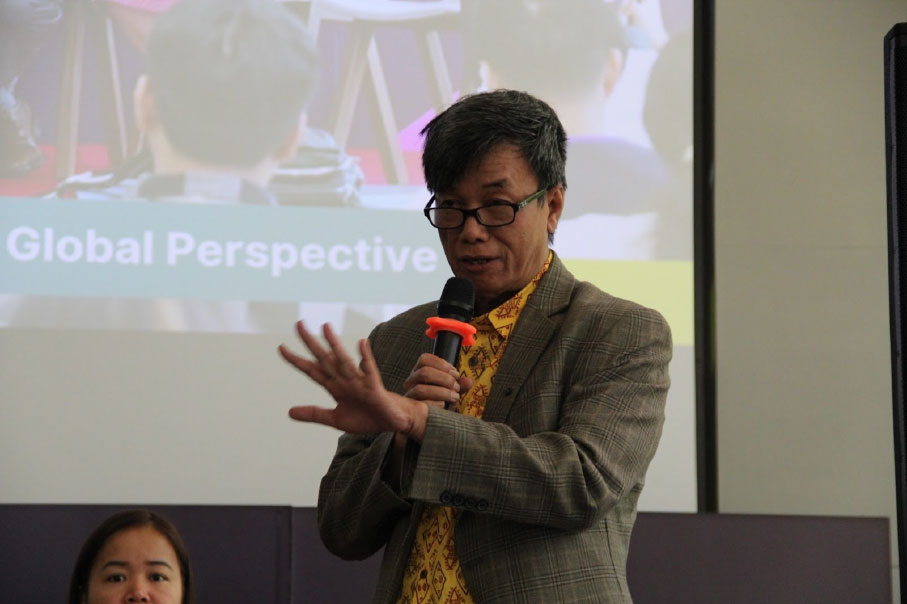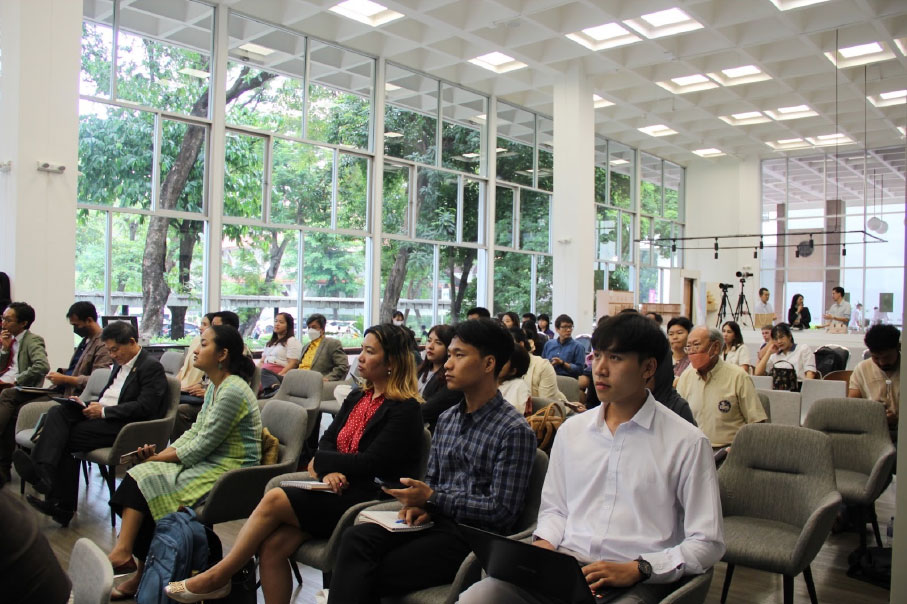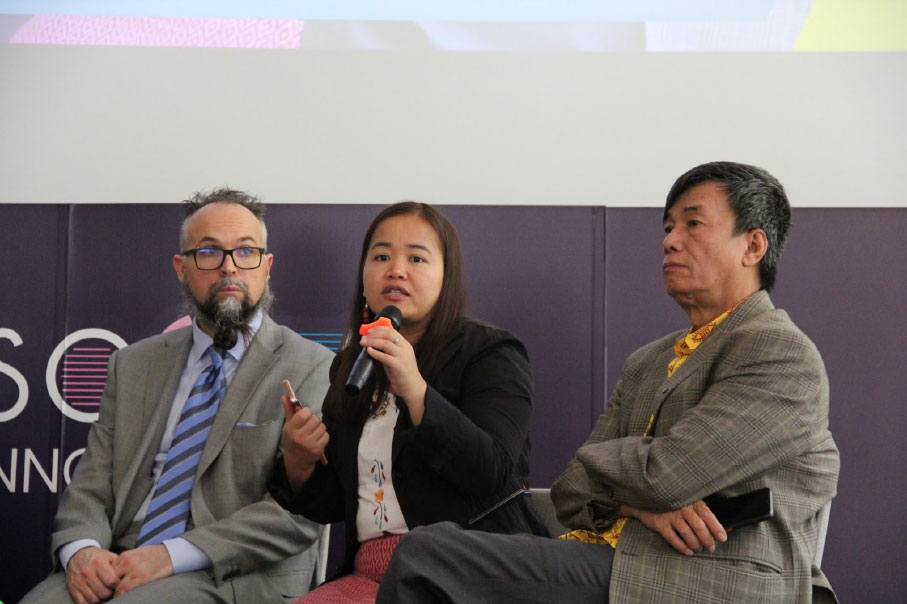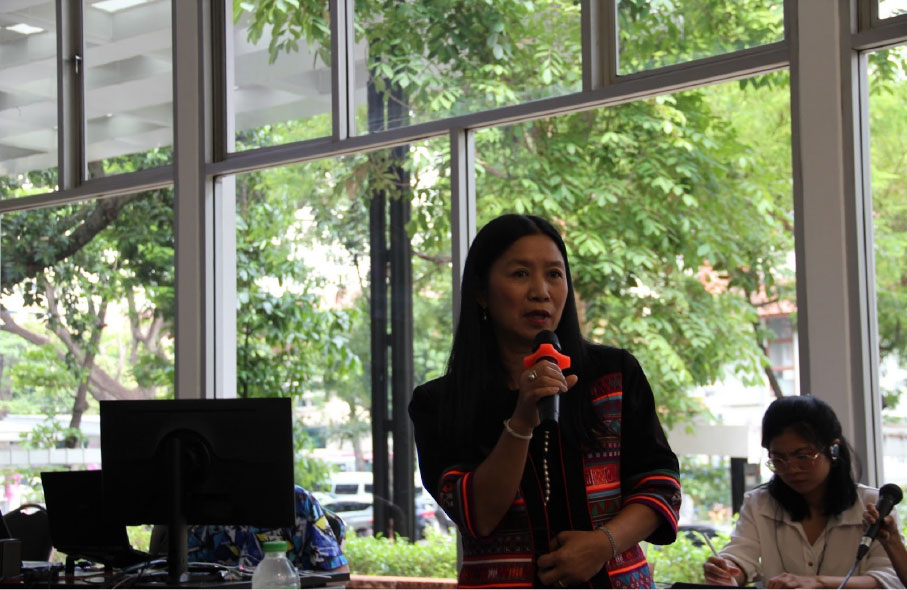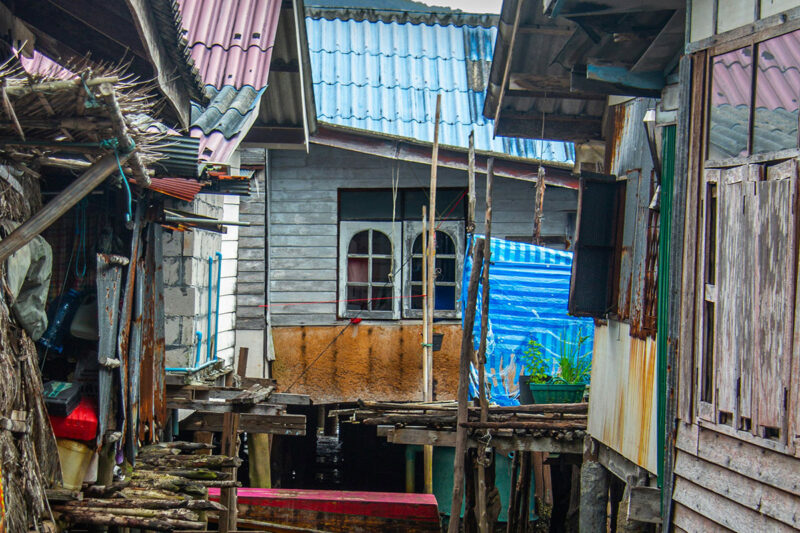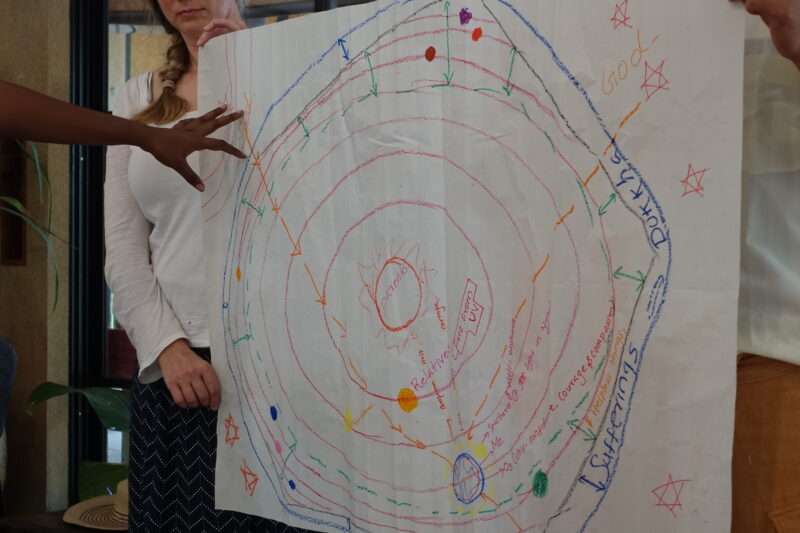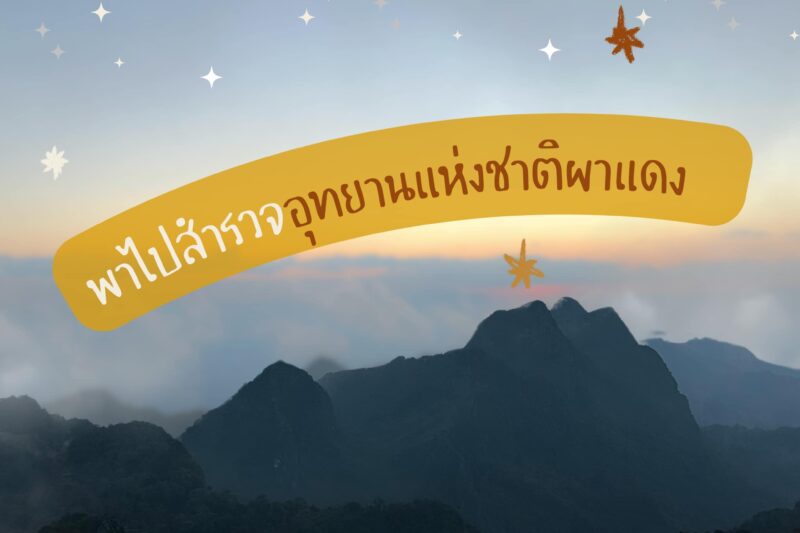Chula Engaging with the Parliament, Leading an International Policy Dialogue
The discussion panels on Futures of Sustainability: The Bio-Cultural Diversity Imperative were held on the first day as part of the international workshop on Indigenous led research advancing solutions to climate change at the Social Innovation Hub, Chulalongkorn University between March 22-23, 2024.
The event was co-organized by the School for Environment & Sustainability at the University of Michigan, the Office of Research Affairs (ORA), the Chulalongkorn University Social Research Institute (CUSRI), the Graduate Program on Environment, Development and Sustainability (EDS), the Center for Social Development Studies (CSDS) at the Faculty of Political Science, the Office of International Affairs and Global Network (OIA), and UNESCO-MOST (Management of Social Transformation Programme), which brought together multi-disciplinary scholars and special guests from different countries to share and discuss bio-cultural diversity and sustainability futures. With an aim to strengthen the science-policy interface in driving the role of indigenous communities in climate change, the event served as a co-learning platform for indigenous led research.
Upon concluding the international workshop, the delegates visited the Parliamentary Committee of Thailand to conduct open discussions and exchanges on the issues of promoting the rights of ethnic minorities and indigenous communities across the world. The committee meeting was chaired by the Pol. Lt. Col. Aphat Sukhanan, Secretary-General of the House of Representatives, Thailand. The joint committee meeting took place between 13:00-16:00 on March 22, 2024, at the Parliament House of Thailand. (See further details from this report).
During the discussion panels, guest speakers from diverse disciplines shared their experiences in indigenous and scientific research, discussing the urgency and possibilities to draw connections between bio-cultural diversity to address ecological crises. While indigenous people make up to 6% of the global population, they protect more than 80% of global biodiversity. As a result, promoting the indigenous knowledge can be one of the key solutions.
The key discussions are listed as following:
Acknowledging the linkage of Bio – Cultural diversity
Traditionally, biodiversity has been viewed and approached from scientific perspectives. This dominant way of thinking has mainstreamed our narratives and policies to tackle biological loss.
We are at an accelerating rate in biodiversity loss and ecological destruction. The alarming facts were confirmed by the marine scientist Dr. Padermsak Jarayabhand from the Faculty of Science of Chulalongkorn University.
“Today, 1 million animal and plant species have already faced extinction. That means we already lost 1 out of 10 of the world’s biodiversity.”
The panels challenged the narratives by highlighting the role of indigenous communities in safeguarding biodiversity as they live in the forest/coastal area which is home to 80% of global biodiversity. Their harmonious ways of living with nature root deeply in their knowledge and everyday practices.
Mr. Mrinal Kanti Tripura, an indigenous representative from Bangladesh Indigenous Peoples Network on Climate Change and Biodiversity (BIPNet) shared his personal upbringing in a shifting cultivators family in Chittagong Hill Tracts, southeastern Bangladesh.
“I saw my parents and grandparents working and paying homage to the rivers, waters, and streams as essential to the well-being of life,” recalled Mrinal “When disaster struck, I witnessed how they nurtured the small plants with their caring techniques, so the plants can survive and flourish.”
The values of indigenous worldviews in protecting biodiversity
The experience shared by Mrinal from Bangladesh echoed those from the Akha communities in China. Assoc. Prof. Dr. Jianhua Wang shared his research from Mengsong township in Yunnan province where Akha people shape their worldview with the concept of sacred landscape.
They believe that there are spirits guarding the ecosystems such as streams, swamps and birds, so there are collectively practiced customs in the communities which forbid overexploitation. In Nepal’s Tusm valley indigenous communities, the similar customs of non-violence toward the surrounding environment and animals are called “Shyagya”.
Narumon Arunothai, an anthropologist from Chulalongkorn University Social Research Institute, helped expand the dialogue by sketching out the differences between mainstream and the indigenous worldviews. The mainstream lifestyle has extracted nature to resources and consumed them through money. This has segregated and alienated humans from nature.
“In this age of accelerations, do we need other ‘systems’ of knowledge that view the earth differently from ours to slow down the degradation processes?”
She and other panelists highlighted the importance of environmental education, co-produced by the indigenous knowledge and scientific-driven study. Education means both formal academic study as well as informal education.
Recognizing the customary rights and promoting fair resources distribution
However, indigenous communities across the world are facing the erosion of indigenous knowledge due to monoculture and modernization. This is not to mention the little space for them on the national and international level platforms.
“Ecological crisis is not only the environmental crisis, but the loss of indigenous knowledge, culture and identity,” stressed Dr. Jianhua from the Akha community.
The panelists agree that recognizing the customary rights of indigenous people is urgently needed. In Chittagong Hill Tracts in Bangladesh, neither the indigenous people’s rights are recognized by the Bangladesh government nor their cultivation practice, likewise the cases in China and Thailand.
In some countries in Asia, indigenous customary rights are guaranteed by the government such as the case of Nepal’s Tusm valley where Dr. Pasang Dolma Sherpa, Executive Director from CIPRED comes from. The customary practices gained legal recognition by the Nepal government in 2023 and marked a historical step.
But, having customary rights indicated in the law book is not enough. Ms. Helen Magata from Tebtebba, the international indigenous research and education center based in the Philippines, pinpointed that the indigenous people still struggle to participate in the policy making stages. Moreover, international climate mechanisms such as Loss and Damage do not distribute evenly to the indigenous and local communities despite their claims. Genuine implementations are needed.
The issue of environmental justice is important. Prof. Dr. Kyle Whyte, Potawatomi researcher from University of Michigan in USA, added that the national administration and donors must be proactive to distribute financial support to the grassroot indigenous organizations.
He raised the question whether we should share the climate burden equally or the major industrial polluters should take more responsibilities?
“The Anthropocene is a bit of a strange term. ‘Anthro’ means all humans, but we know that it’s not all types of human activities that are responsible for biodiversity loss. […] We want to call out the unequal distribution of climate burdens that it’s placing on indigenous people.”
The Roles of Scholars and ways forward
The event was joined by several indigenous and local representatives. Some of them raised questions on how their local communities can access these fruitful discussions and how the academic experts can contribute to their conservation movement.
The panel has mirrored the questions in several parts of the discussion. For example, the vision to co-produce knowledge interdisciplinary is not a mere vision. Asst. Prof. Dr. Somrudee M. Jitpraphai, a marine geographer from Chulalongkorn University, shared her previous research illustrating the connection between human activities and marine conservation.
Among them, Dr. Somrudee has joined hand in hand with local fisherfolk communities to study the changing coastal ecosystem as a result of industry expansion.
Apart from research, policy recommendation is another tool to bring in ecological justice. Ms. Pitikan Sithidej, representative from Thailand’s National Human Rights Commissioner, explained about her organization’s role to assess human rights violation cases in Thailand and make policy recommendations to amend the related laws. Many among the violations are environmental issues.
At the end of the session, the discussion was wrapped up by Mr. Phinith Chanthalangsy from UNESCO Regional Office and Prof. Surichai Wun’Gaeo, professor Emeritus of Sociology from Chulalongkorn University.
The Regional Advisor for Social and Human Sciences emphasized that “The academic world can help turn the questions of ecological crises into research projects or indicators for the government to work for vulnerable groups and indigenous people.”
Working together is important, not only for academic disciplines, but also countries and generations. Prof. Surichai underlined the solidarity among people from different backgrounds.
Recorded video available on Facebook: https://www.facebook.com/chula.cusri/videos/312587028173169
BY Office of International Affairs and Global Network, Chulalongkorn University
Others

